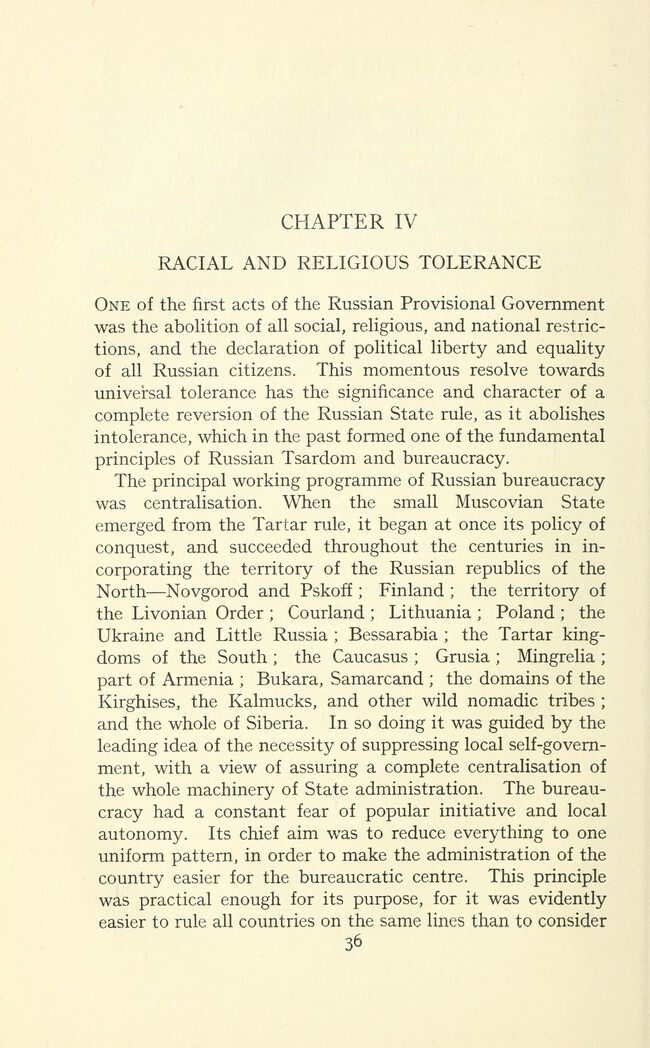
Full resolution (JPEG) - On this page / på denna sida - IV. Racial and religious tolerance

<< prev. page << föreg. sida << >> nästa sida >> next page >>
Below is the raw OCR text
from the above scanned image.
Do you see an error? Proofread the page now!
Här nedan syns maskintolkade texten från faksimilbilden ovan.
Ser du något fel? Korrekturläs sidan nu!
This page has never been proofread. / Denna sida har aldrig korrekturlästs.
CHAPTER IV
RACIAL AND RELIGIOUS TOLERANCE
One of the first acts of the Russian Provisional Government
was the abolition of all social, religious, and national
restrictions, and the declaration of political liberty and equality
of all Russian citizens. This momentous resolve towards
universal tolerance has the significance and character of a
complete reversion of the Russian State rule, as it abolishes
intolerance, which in the past formed one of the fundamental
principles of Russian Tsardom and bureaucracy.
The principal working programme of Russian bureaucracy
was centralisation. When the small Muscovian State
emerged from the Tartar rule, it began at once its policy of
conquest, and succeeded throughout the centuries in
incorporating the territory of the Russian republics of the
North—Novgorod and Pskoff; Finland ; the territory of
the Livonian Order ; Courland ; Lithuania ; Poland ; the
Ukraine and Little Russia ; Bessarabia ; the Tartar
kingdoms of the South ; the Caucasus ; Grusia ; Mingrelia ;
part of Armenia ; Bukara, Samarcand ; the domains of the
Kirghises, the Kalmucks, and other wild nomadic tribes ;
and the whole of Siberia. In so doing it was guided by the
leading idea of the necessity of suppressing local
self-government, with a view of assuring a complete centralisation of
the whole machinery of State administration. The
bureaucracy had a constant fear of popular initiative and local
autonomy. Its chief aim was to reduce everything to one
uniform pattern, in order to make the administration of the
country easier for the bureaucratic centre. This principle
was practical enough for its purpose, for it was evidently
easier to rule all countries on the same lines than to consider
36
<< prev. page << föreg. sida << >> nästa sida >> next page >>